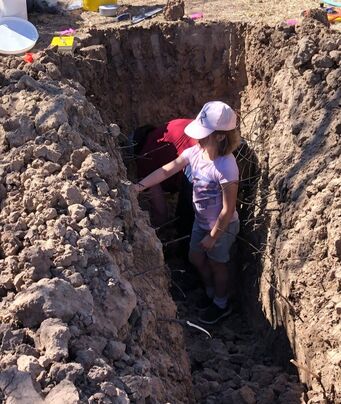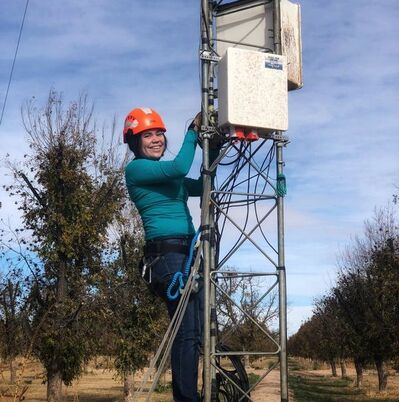Pecan Orchard (agricultural site)
El Paso, TX
Within El Paso County, TX, about 178,000 acres of farmlands are irrigated with Rio Grande river water. Soils along the Rio Grande floodplains have been intensively cultivated for the last 90 years with cotton, pecan, alfalfa and chili as major crops. Commonly, fields are flood-irrigated every two to three weeks during the growing season, totaling at 1000 to 1500 mm of water per year. Here, the parent sediments have low to no carbonates, but irrigation has led to the accumulation of up to 10 wt% of pedogenic carbonate and detectable abiotic CO2 in soil gases. We have combined CO2 concentration and flux sensors, geophysical and geochemical tools and worked on quantifying the calcite precipitation and abiotic CO2 emission, supported by an on-going NSF project.
Within El Paso County, TX, about 178,000 acres of farmlands are irrigated with Rio Grande river water. Soils along the Rio Grande floodplains have been intensively cultivated for the last 90 years with cotton, pecan, alfalfa and chili as major crops. Commonly, fields are flood-irrigated every two to three weeks during the growing season, totaling at 1000 to 1500 mm of water per year. Here, the parent sediments have low to no carbonates, but irrigation has led to the accumulation of up to 10 wt% of pedogenic carbonate and detectable abiotic CO2 in soil gases. We have combined CO2 concentration and flux sensors, geophysical and geochemical tools and worked on quantifying the calcite precipitation and abiotic CO2 emission, supported by an on-going NSF project.
Pecan Orchard Agricultural Site








